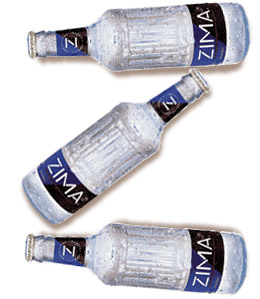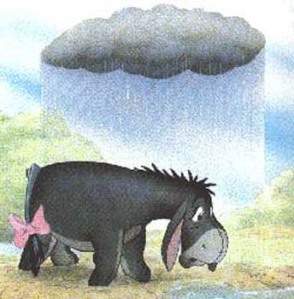There are two kinds of nostalgia narratives, or rather, two poles of possibility – and a wide spectrum in between – from which historical storytelling can work.

In the first pole of nostalgia, time, place and culture are used in their most superficially referential aspects to deliver the audience a cascade of pop-culture sparks, to make them remember gaspingly what brand of shoe they used to wear, what kind of music they used to love, and generally serving to make them laugh and say: “Holy sh-t! Can you believe we used to be like that?” This kind of nostalgia piece might deliver a few chuckles, maybe a few big ones, but it’s ultimately nothing more important than “That 70’s Show.”
In the second, deeper historical narrative, time and place become a vivid backdrop for a deeper tale, for a real human story to unfold. In this kind of story, the pop culture references and nostalgic adornments still have a place, but their role is to aid you in accessing the real (timeless?) people on the screen or page. You can laugh at the past, but the laughs aren’t cheap, they make you (re)connect with the heart of the matter.
The Wackness has a really hard time figuring out which of the above it wants to be.
It’s NYC, Summer 1994, just before the Giuliani Era got into full swing, before Hip Hop music began its swift descent into the Materialistic Era of Puffy and Jay-Z. Recent high school grad and hip-hop loving Upper East Side resident Luke Shapiro sells marijuana out of an icey cart in Central and Washington Square Parks to make a little money before heading off to his safety school in the Fall. He also deals at the parties of people he went to high school with, who take his weed but ignore his presence, thus allowing him to fulfill the romantic “loner” roll that writers always seem to write about when they’re a bit too lazy to describe the subtleties of friendship. Luke’s a heroic loner pot dealer in fact, because his main reason for selling is to help his parents out financially so they don’t get evicted from their Upper East Side apartment. How sweet. Reminds me of exactly none of the private school herb dealers I knew in the city.
One of the people Luke sells pot to is his shrink, Dr. Jeffrey Squires, played by a Ben Kingsley who can neither decide on an accent (Brooklyn with a dash of Middle Eastern and British?) nor find a way to portray his character coherently (despite this critique, Kingsley makes you laugh, and a few times it’s that belly-busting type). Dr. Squires is in a full-on midlife crisis, and eventually latches on to Luke to recapture his lost youth, and the two develop an odd (Hollywood) friendship. Meanwhile, Luke falls hard for Dr. Squires’s stepdaughter, who looks and acts exactly like the kind of girl I would’ve fallen hard for in the summer of ’94 chilling in Washington Square. Except one of my boys a bit further along with both puberty and confidence woulda scooped up her digits and gotten nice with her before I even had a chance to say What’s Up. Luke, unlike me, gets and then loses the girl, leading to his first ever heartbreak, which definitely tugs at the heartstrings.
Let me say I’m probably the wrong person to critique this movie, because I have a greater eye to what this movie gets wrong historically then most viewers would. Since I’m finishing a novel that takes place in Manhattan 1995-96, you could bet I researched the time period pretty intensively. First, people weren’t really upset with Giuliani yet in the summer of ’94. It was his first six months in office, and his “Fuck everybody who doesn’t make $300,000 a year” policies were just taking shape. It was more like ’96-97 before the “Giuliani Sucks” movement took effect. He certainly wouldn’t have stoked the moral ires of a rich psychiatrist from the Upper East in ’94. Hell, Dr. Squires maybe would’ve voted for him seven months earlier. And the Cops were more laissez-faire in ’94, but they weren’t idiots. The fact that Luke doesn’t get arrested in his first scene with the icey cart is somewhat unrealistic. Some other things are off, such as a reference to Starbucks as if it was already a cultural phenom when the first Starbucks in the city only opened two months before the movie takes place. But that’s nitpicking. But since this movie seems to pride itself on a cache of cultural details, maybe a bit of nitpicking is necessary. It also goes for its full potpourri of kitsch pop culture references, including a party at which the kids are drinking Zima. I found myself simultaneously laughing pretty hard at these references and thinking “Come On, Now. Why so much Wackness?”
And The Wackness has a good soundtrack. Which actually would be hard for it not to have, given that Hip Hop music had just peaked and was about to head into a dark age of decline (one it has yet to recover from, unless you like hip hop that just ain’t popular). But even the soundtrack has little to do with what’s unfolding on the screen. It sounds more like you’re watching a movie while lounging at a good DJ’s 90’s hip-hop party.
This movie is about 10,000 times better than the movie Kids and the novel Twelve, from which it seems to loosely borrow themes (more-so from Twelve, another about an Upper East side drug dealer with a heart of gold). That’s not saying much, though. Those were two of the worst pieces of NYC culture ever produced. The Wackness is held together almost entirely by a pitch perfect and endearing performance of its lead, Josh Peck as Luke. Peck is by far the best thing in the movie. He makes you feel him big time. He makes you endure all the times that The Wackness flirts shamelessly with too-easy caricature (the ri-donculous cameos of a bombaclot-Jamaican-accented Method Man and a hippie girl Mary-Kate Olsen don’t allow suspension of disbelief). Peck’s performance makes this a good, funny, but flawed movie. Without him, it’s basically “That 90’s Show.”
Also, I want to mention my friend from college Nellie Hermann’s debut novel, The Cure for Grief, recently released and recently read by moi. It’s a really tough and sad coming of age story, but Nellie’s a great writer, and the book is getting starred reviews. Read it. Turns out a lot of those folks I went to an elite university with are starting to have real creative success. What does that say about our recent conversation about the dangers of an elite education, Menagerist?



